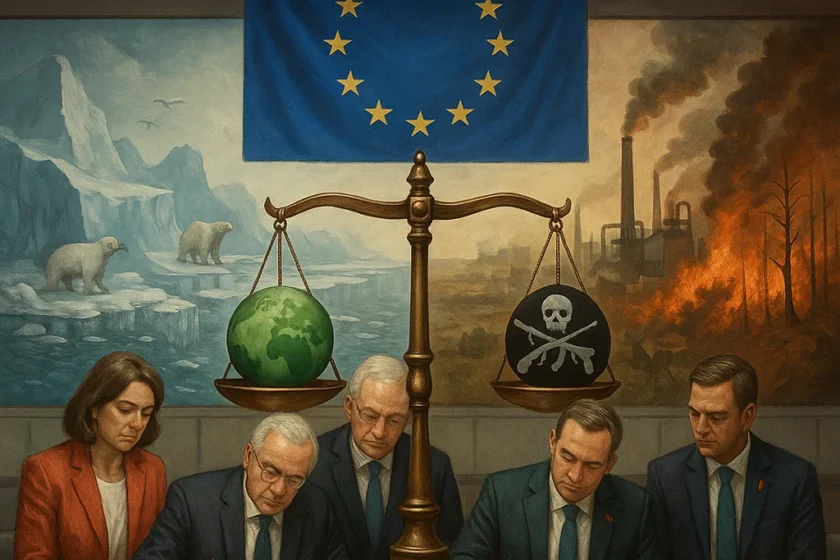
The Council of Europe has taken a significant step in the fight against environmental destruction by adopting a new international convention aimed at effectively combating serious environmental crimes, which often go unpunished or are inadequately addressed by criminal justice systems. The treaty was approved by the foreign ministers of the 46 member states, gathered in Luxembourg, with the support of key actors such as the European Union, the United Nations, Interpol, and numerous civil society organizations.
A Response to the “Triple Planetary Crisis”
The new convention is a collective response to the so-called triple planetary crisis: climate change, pollution, and biodiversity loss. It is a binding legal instrument that provides states with a solid regulatory framework to tackle environmental crimes, including those with cross-border impacts. The Council of Europe emphasizes that environmental destruction is not only a political issue but can and must be recognized as a criminal offense.
The Content of the Treaty: Ecocide, National Strategies, and Cooperation
The convention criminalizes a wide range of environmental offenses, including intentional acts that result in disasters comparable to ecocide. Notably, it establishes that the treaty applies both in times of peace and in situations of armed conflict, war, or occupation.
Signatory states will be required to adopt a national strategy for the prevention and prosecution of environmental crimes, as well as to commit to the periodic collection of data, research, and evaluation of the effectiveness of the measures implemented.
Corporate Accountability and Combating Organized Crime
One of the treaty’s innovative features is the recognition of corporate responsibility for environmental crimes, with the introduction of criminal penalties and provisions concerning jurisdiction and the involvement of organized crime. The document reflects the evolution of environmental offenses and their increasingly close ties to transnational criminal networks.
A Turning Point in Environmental Justice
According to Alain Berset, Secretary General of the Council of Europe, the convention marks a decisive turning point: it addresses ecological threats using the tools of criminal justice and is part of a broader strategy linking the environment, human rights, democracy, and the rule of law.
This strategy, inspired by the 2023 Reykjavík Declaration, includes an operational action plan and outlines five strategic objectives to counter interconnected environmental crises. It also reaffirms the commitment to the protection of wildlife, ecosystems, and natural landscapes, highlighting historical instruments such as the Bern Convention and the Landscape Convention.